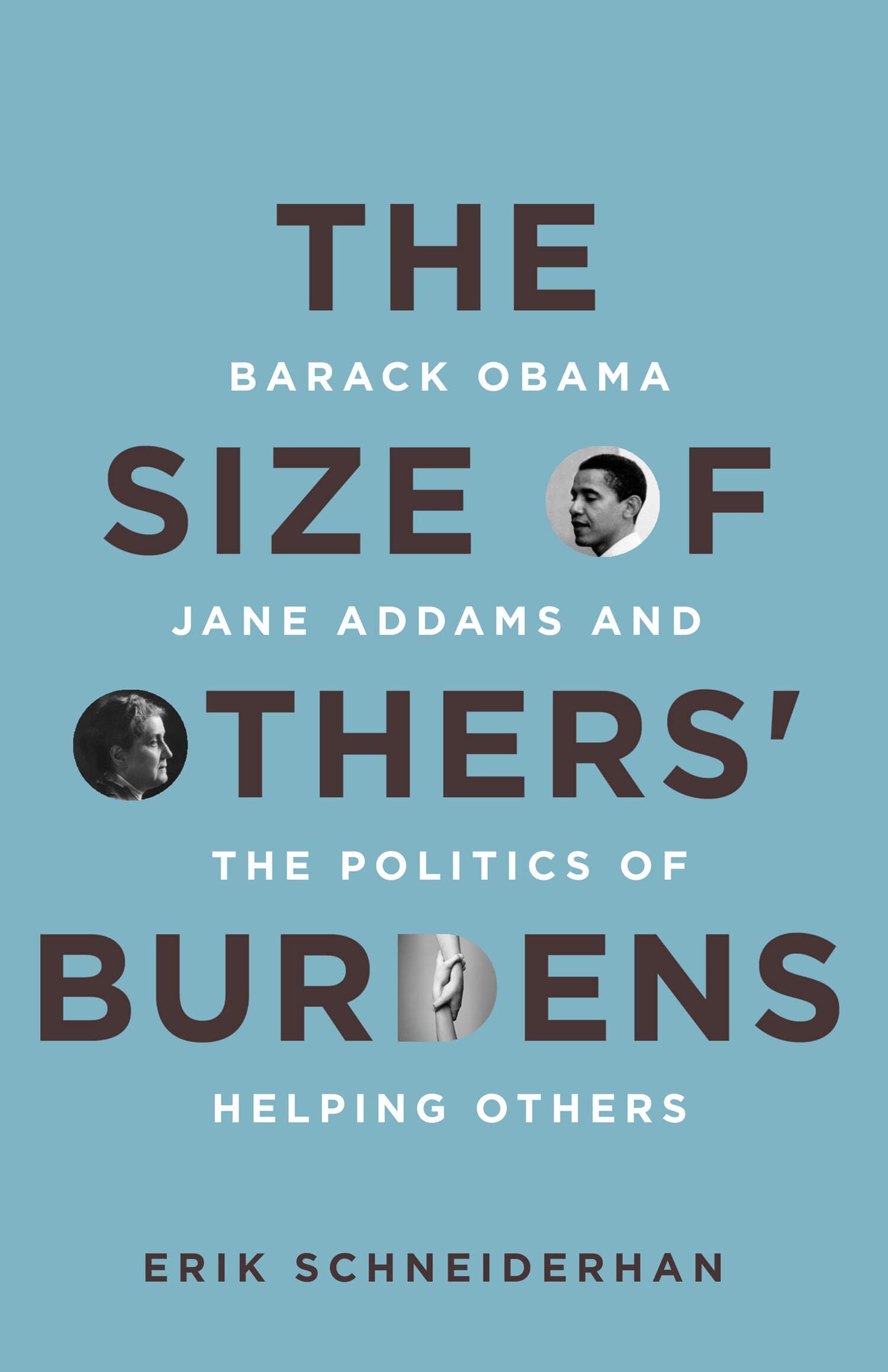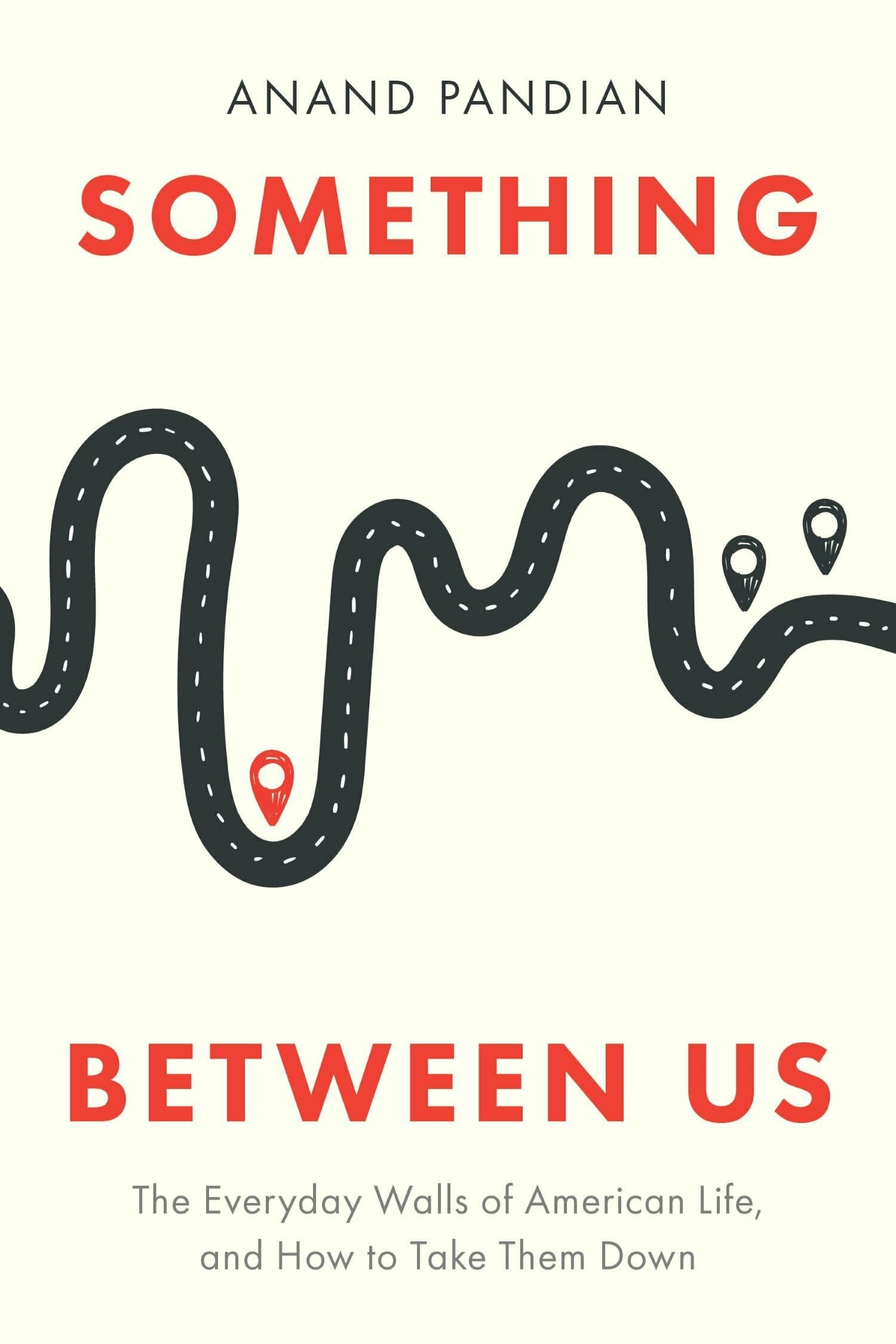The Size of Others' Burdens

Americans have a fierce spirit of individualism. We pride ourselves on self-reliance, on bootstrapping our way to success. Yet, we also believe in helping those in need, and we turn to our neighbors in times of crisis. The tension between these competing values is evident, and how we balance between these competing values holds real consequences for community health and well-being. In his new book, The Size of Others' Burdens, Erik Schneiderhan asks how people can act in the face of competing pressures, and explores the stories of two famous Americans to develop present-day lessons for improving our communities.
Although Jane Addams and Barack Obama are separated by roughly one hundred years, the parallels between their lives are remarkable: Chicago activists-turned-politicians, University of Chicago lecturers, gifted orators, crusaders against discrimination, winners of the Nobel Peace Prize. Addams was the founder of Hull-House, the celebrated American "settlement house" that became the foundation of modern social work. Obama's remarkable rise to the presidency is well known.
Through the stories of Addams's and Obama's early community work, Erik Schneiderhan challenges readers to think about how many of our own struggles are not simply personal challenges, but also social challenges. How do we help others when so much of our day-to-day life is geared toward looking out for ourselves, whether at work or at home? Not everyone can run for president or win a Nobel Prize, but we can help others without sacrificing their dignity or our principles. Great thinkers of the past and present can give us the motivation; Addams and Obama show us how. Schneiderhan highlights the value of combining today's state resources with the innovation and flexibility of Addams's time to encourage community building. Offering a call to action, this book inspires readers to address their own American dilemma and connect to community, starting within our own neighborhoods.
"You wouldn't think there would be many similarities between a wealthy Illinois woman [Jane Addams] and a young, mix-raced political activist [Barack Obama], but their characters and the paths they followed bind them together . . . Schneiderhan is wise to present these biographies back to back rather than point out commonalities one after another. He shows how these two illuminated the American dream even though race and gender loomed large to prevent them . . . His work, like theirs, is inspiring"—Kirkus
"How should we balance the pulls of individualism and community, of realism and idealism? This is the American dilemma. Erik Schneiderhan shows how two Americans—Jane Addams and Barack Obama—struggled to resolve this dilemma for themselves, and helps us all to think about how we each can respond creatively in our own lives. This book is a must read for thoughtful citizens."—Philip Gorski, Yale University
"Jane Addams is a remarkable figure in our history, and the contemporary story of Barack Obama helps us understand why. Taken together, their stories provide an opportunity for deep reflection on what it means to organize for change."—Bill McKibben, author of Deep Economy: The Wealth of Communities and the Durable Future
"What do those who seek to make a better world actually do? In The Size of Others' Burdens, Erik Schneiderhan reconstructs the paths taken by two community organizers, Jane Addams and Barack Obama, illuminating how obstacles and contradictions prompted strategic creativity. The result is a book that is at once engaging, inspiring, and a challenge to move from analysis to action."—Elisabeth Clemens, coeditor of Politics and Partnerships: The Role of Voluntary Associations in America's Political Past and Present
"The lives of Jane Addams and Barack Obama show how great achievements may come from grappling with ambivalence, not from crystalline clarity. A lesson of particular importance for those who work to bring change within a profoundly unequal society, it is nowhere more true than in navigating the American dilemma where poverty and racism coexist in a society of plenty and partial freedoms. The Size of Others' Burdens deserves to be widely read."—Craig Calhoun, President, London School of Economics and Political Science




